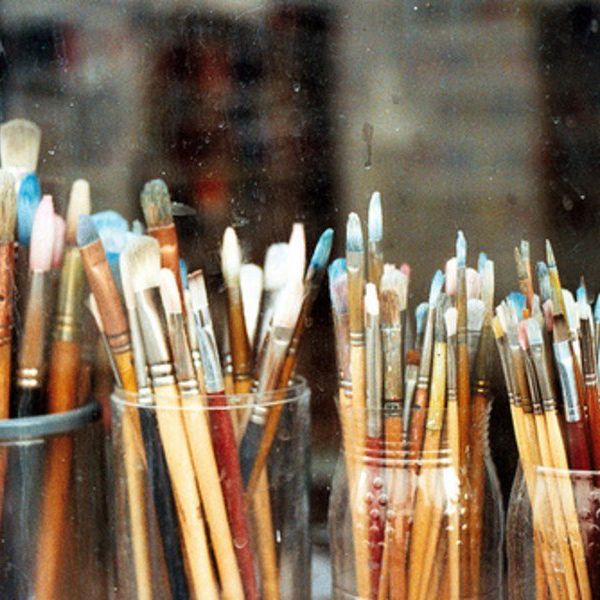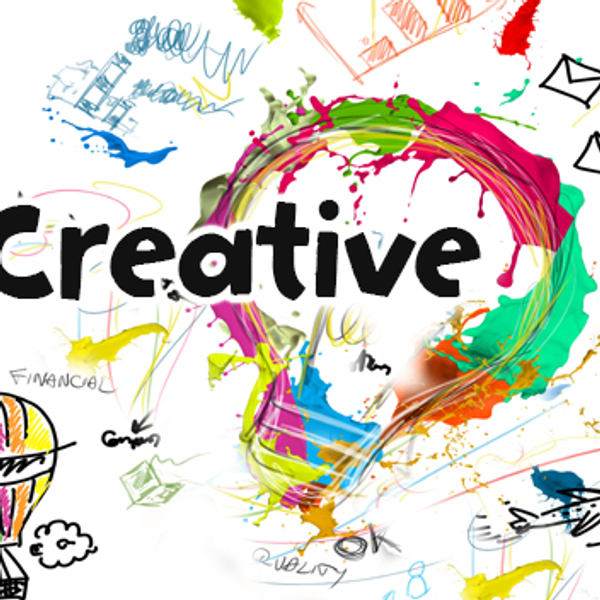Imagine:
You, a screenwriting major, and a friend, a chemistry major, are sitting together while working on homework.
Your friend is stuck on a complex math problem that looks to be a soupy mixture of numbers and letters in a nonsensical sequence. The path to the solution is a long and winding one. He’s frustrated.
So he turns to the Internet. With Google, he finds example problems, formulas, answers, reassurance. He also texts another friend who is working on the same problem. After this whole, multi-layered process is through, he finds the correct answer to his worries and celebrates.
Meanwhile, you are still sitting, staring at your computer screen. You’re a page and a half into a script that requires a minimum of three and you’re stuck. Words refuse to form within your mind and travel out through your fingertips to the computer. You consider scrapping everything you’ve written so far, your progress over the past few grueling hours, just to get a fresh start on things. You begin to question life. What defines the fabric of time and space? Is it just a social construct? Why even bother trying if we're all just going to die, anyway?
This experience is what we writers call “writer’s block.” Artists experience a similar special hell in what they call “artist’s block.” I’ve never thought much of writer’s block beyond it being a frustrating obstacle, but after an experience similar to the scenario I described above, I can assure you that writer’s block can be harder than any math problem you’ll see.
Math is hard, don’t get me wrong. But for any problem, there’s usually an exact solution you can find (I’m speaking generally, of course, from my math experience of calculus being my highest level of math thus far, so don’t bother me with your complicated math theories and fake numbers, or whatever). And if there’s an exact solution, then there’s a way to solve it that can be duplicated and repeated by others; A.K.A., your friend or teacher can help you solve a problem and get that 100%.
When you’re an artist, things don’t work in quite the same way. I mean, yeah, art can be improved and writing requires a good grasp on grammar, but actually producing that quality content that will get that 100% can’t be done in such a way that is a repetition of others’ work, nor can someone show you the exact way to get from Point A to Point B. My friend solved his math problem while I continued to bang my forehead against the carpet in hopes of a new idea for what my characters should do striking me in a divine revelation. God Himself could have descended before me in that instant and my problems still wouldn’t have been solved instantaneously.
People like to say all kinds of things about art majors while puffing their chests and acting high and mighty, as if they’ve completely figured out life, death, and everything that comes in between. I suppose if you’re just a materialist, or something, then thinking about anything outside of your physical life of breathing, working, eating, and sleeping isn’t really your cup of tea, but I’m pretty sure most people out there believe in some kind of nonphysical realm, such as where their thoughts and soul exist, disconnected and unreachable from a solely physical standpoint.
This world needs its creative professionals. Yes, getting into the art industry isn’t easy, and it requires participants to embrace the feelings of failure and disappointment quite often. But that doesn’t mean it’s impossible. If anything, the sheer difficulty of breaking out should make people respect art majors, because we’re willing to sacrifice the safety of a stable career from college graduation to retirement for the sake of our creative passions, to entertain you.
Be patient. Have faith in our skills when we choose to pursue this field. It will pay off in some way, at the end of the day.




















